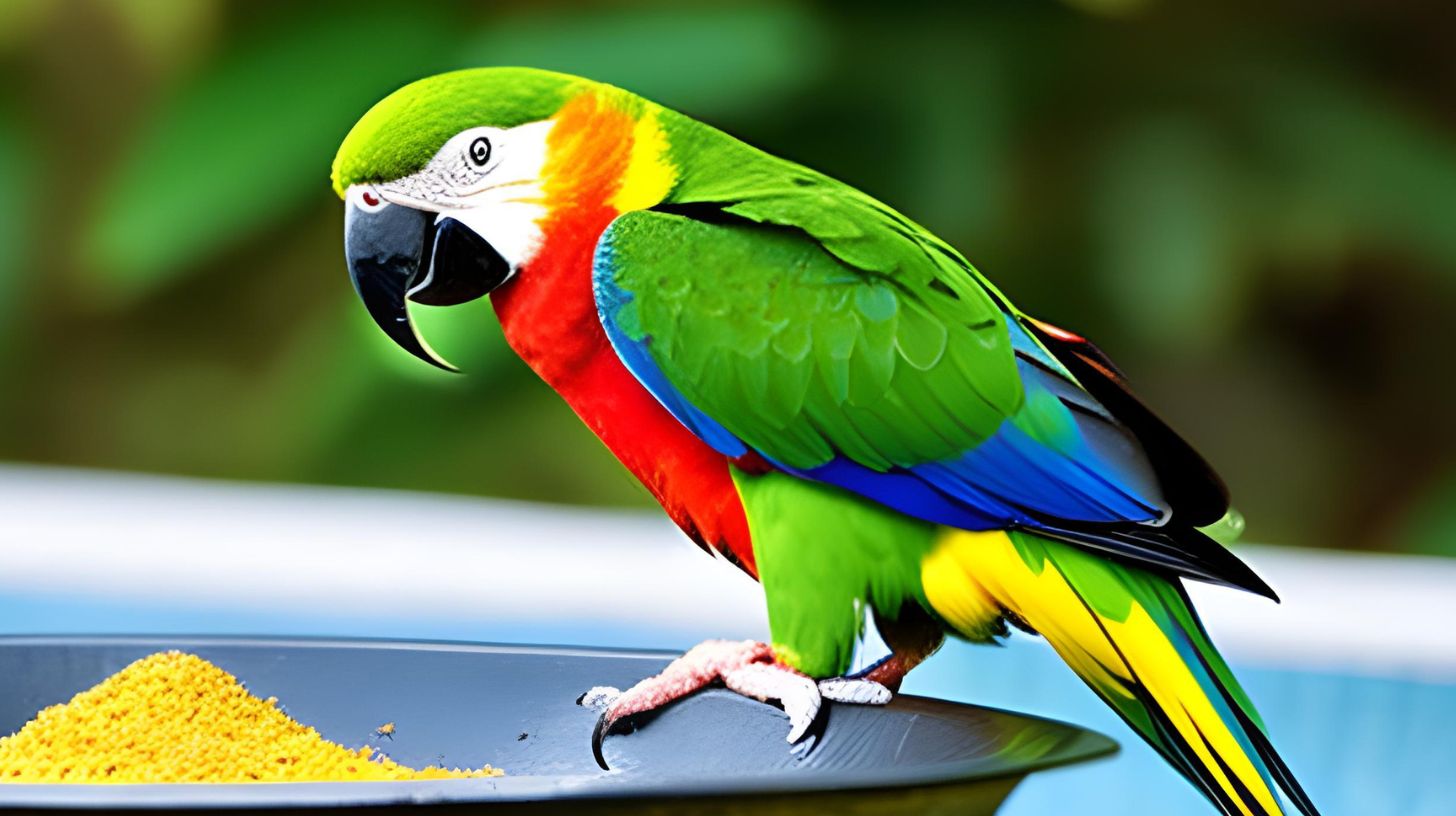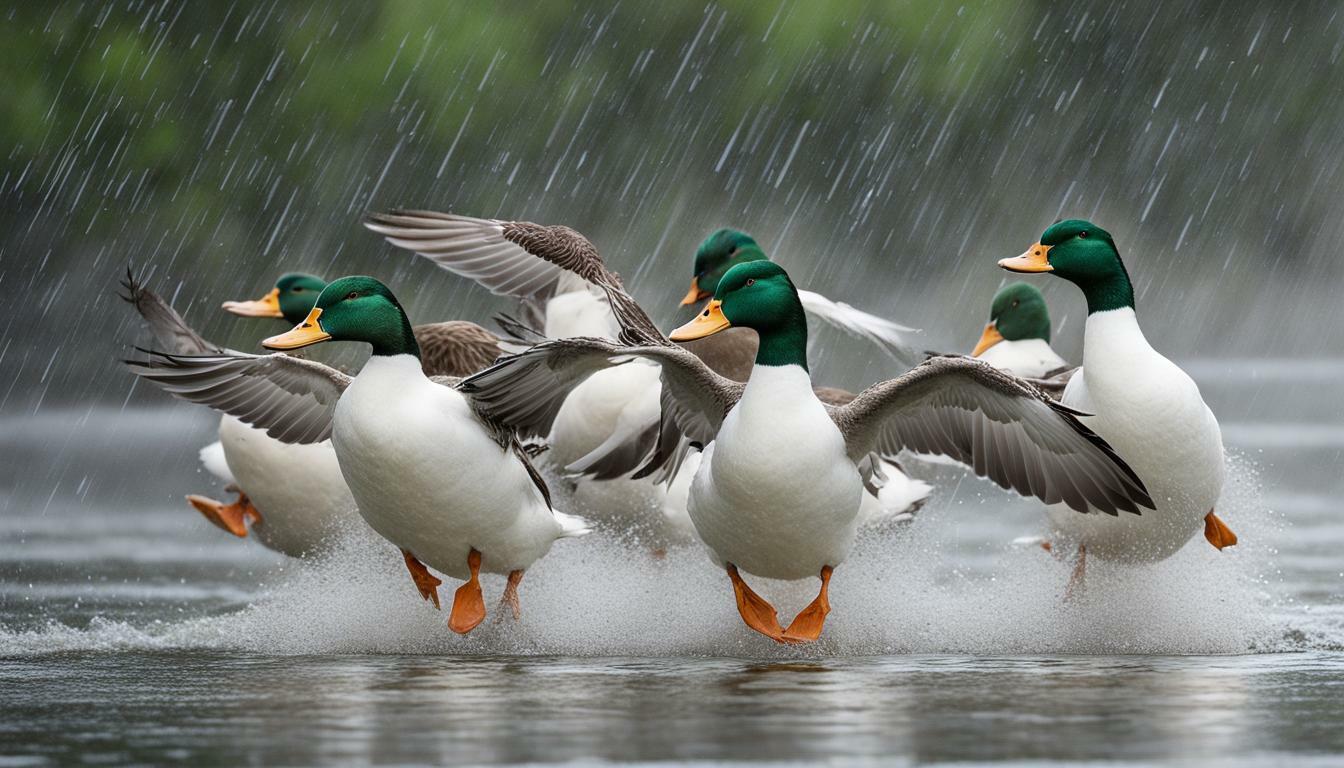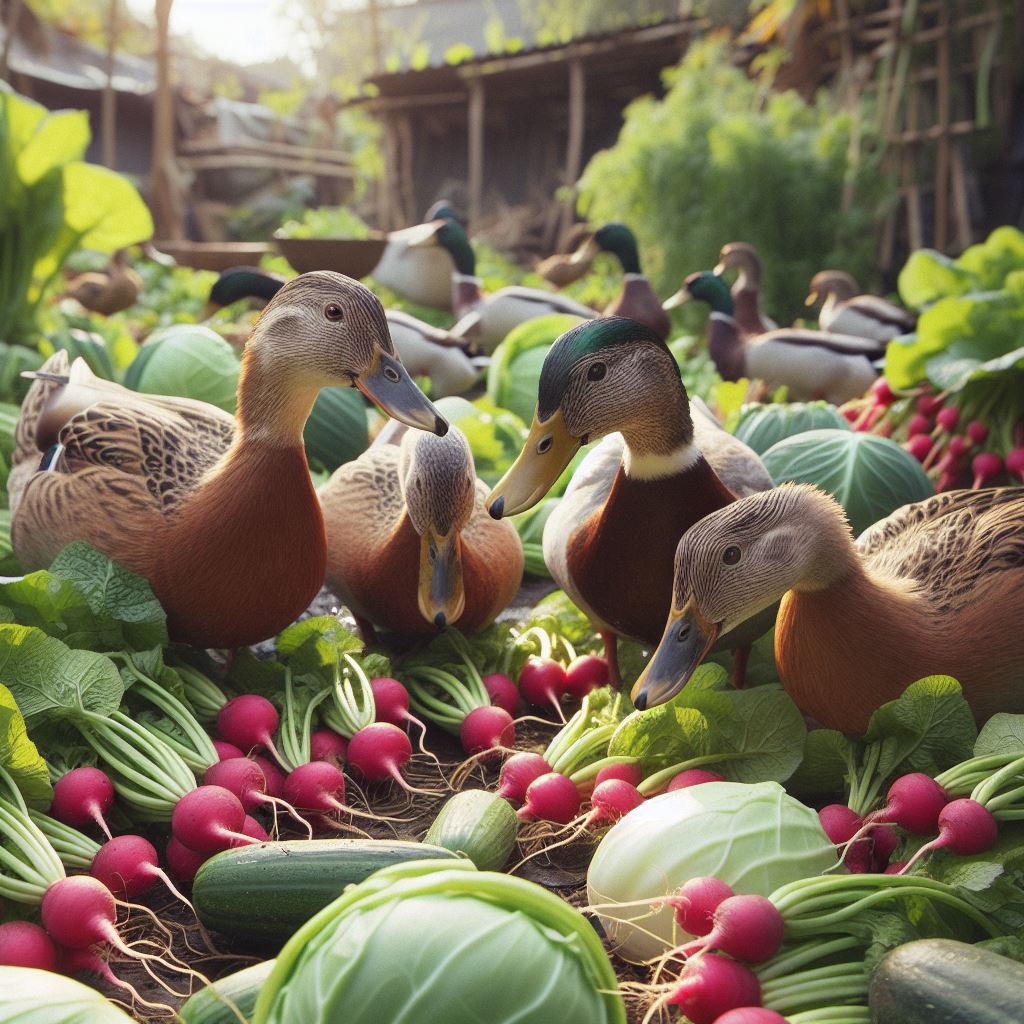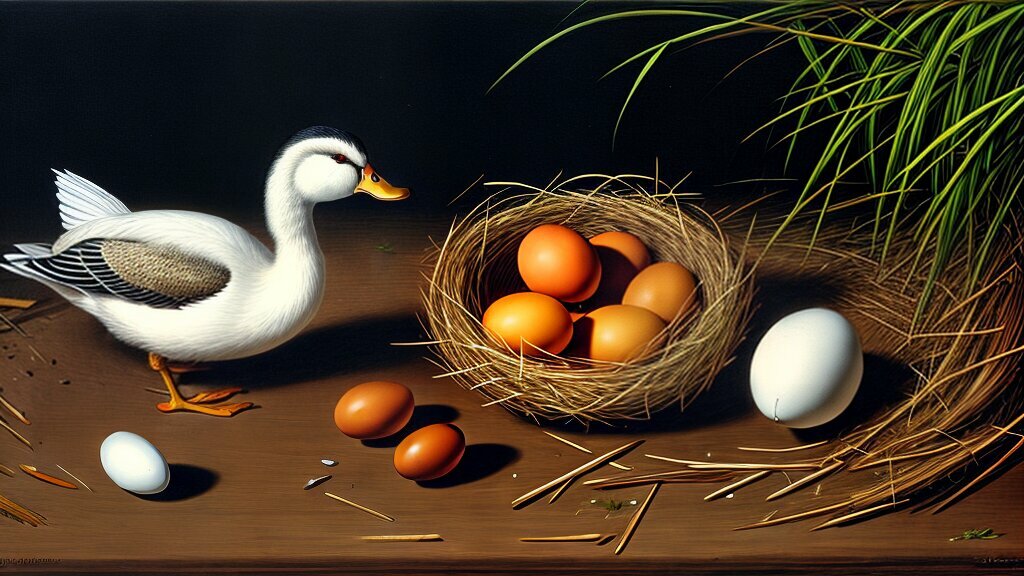Can Ducks Eat Parrot Food? All You Need to Know

Table of content:
- How Much Parrot Food Can Ducks Eat?
- What Happens If Ducks Eat Parrot Food?
- Is Parrot Food Bad For Ducks?
- Can I Feed My Ducks Parrot Food Occasionally?
- Will Parrot Food Make Ducks Sick?
- Do Ducks Need Different Food Than Parrots?
- Is Parrot Food Toxic To Ducks?
- Should You Never Feed Ducks Parrot Food?
- Can Ducklings Eat the Same Food as Parrots?
- How Does Parrot Food Affect Ducks Differently Than Parrots?
- Final Thoughts
Parrots and ducks are two very different types of birds with different nutritional needs. While parrots tend to eat seeds, pellets, fruits, and vegetables, ducks are omnivores and require protein sources like insects and small fish in addition to grains and plants. This raises the question – can ducks eat parrot food safely? Or will parrot food harm ducks? In this blog post, we’ll explore whether or not ducks can or should eat food formulated for parrots.
How Much Parrot Food Can Ducks Eat?
Parrot food typically contains a mix of seeds, dried fruits, nuts, and pellets specifically balanced for a parrot’s nutritional requirements. Parrots normally eat small amounts of food frequently throughout the day.
Ducks, on the other hand, tend to eat larger meals less often. Ducks also need more protein than parrots require. While ducks can nibble on parrot food, they should not eat large quantities of it or rely on it as a staple diet.
If you want to supplement your duck’s diet with a small amount of parrot food, no more than one to two tablespoons per day is recommended. Parrot food should never make up the majority of a duck’s intake.
Too much parrot food can lead to nutritional imbalances and potential health issues in ducks over time. Moderation is key when offering parrot food to ducks.
What Happens If Ducks Eat Parrot Food?
There are a few things that can happen if ducks eat significant amounts of food formulated for parrots:
- Nutritional deficiencies – Parrot food lacks adequate protein, vitamins, and minerals that ducks need. Deficiencies can cause issues like weak bones and feathers, lethargy, reduced egg production, and compromised immune systems.
- Obesity – Many parrot seed mixes are very high in fat. Ducks that overindulge could become overweight or obese.
- Intestinal upset – Too much parrot food may give ducks diarrhea or constipation since their digestive systems aren’t equipped to handle excess seeds, nuts, and grains.
- Angel wing – An excess of nutrients like calcium and vitamin D contributes to angel wing, a condition where a duck’s wing feathers grow deformed and twisted.
- Fatty liver disease – Excess fat intake can also cause hepatic lipidosis or fatty liver disease in ducks. This preventable disease is often fatal.
To keep ducks healthy, it’s best to feed a balanced diet of poultry feed, greens, vegetables, fruits, proteins, grit, and limited treats like parrot food. Relying solely on parrot food can have detrimental effects on a duck’s wellbeing.
Is Parrot Food Bad For Ducks?
Parrot food itself is not inherently dangerous or toxic to ducks. In fact, many of the ingredients like seeds, produce, and pellets are safe for ducks to eat.
The issue lies in the proportions of nutrients, vitamins, minerals, amino acids, and more that parrot food contains. Parrot food formulations are tailored to a parrot’s nutritional requirements, which differ from a duck’s needs in many ways.
While parrots thrive on diets heavy in carbohydrates like seeds, ducks need plenty of protein. Parrot pellets also have extra calcium for strong beaks and bones; too much calcium gives ducks angel wings.
So parrot food isn’t bad or unsafe as an occasional treat. It simply lacks the right nutrient balance required for a duck’s health and cannot replace a proper duck diet. Feeding parrot food as a duck’s main food would lead to problems.
Can I Feed My Ducks Parrot Food Occasionally?
Yes, ducks can eat small amounts of parrot food as an infrequent snack. The key is moderation.
A few bites of parrot food here and there will not harm an otherwise healthy duck. Just don’t allow your ducks to fill up on parrot food alone.
Some parrot treat options to offer ducks sparingly include:
- Nut and seed mixes – Sprinkle a tablespoon over their regular food.
- Parrot pellets – Duck-sized pellets are safer; limit to a handful per duck.
- Chopped fruits and veggies – A few pieces of apple, banana, melon, carrot, etc.
- Whole nuts in the shell – Let them forage as they would naturally.
- Nutriberries – These compact, nutrient-rich treats are suitable for ducks.
Monitor your ducks when offering parrot food to ensure they don’t eat too much. The rest of their diet should still consist of duck feed and other duck-safe fresh foods. Ask your avian vet for specific treatment recommendations.
Will Parrot Food Make Ducks Sick?
Eating moderate amounts of parrot food now and then is unlikely to make an otherwise healthy duck sick right away. Consuming too much parrot food on a frequent basis can cause health issues over time, though.
Some problems that can develop include:
- Angel wing – Excess calcium and vitamin D cause wing deformities.
- Obesity – High carbohydrate seed mixes promote weight gain.
- Lethargy – Nutritional deficiencies result in low energy.
- Constipation – Not enough water and fiber impact the GI tract.
- Weak bones – Inadequate calcium and vitamin D affect bone health.
- Poor feather quality – Lack of protein, amino acids, and minerals impact feathers.
- Reduced egg production – Deficiencies in nutrients like calcium, phosphorus, and protein decrease egg-laying.
The occasional parrot treat won’t harm your ducks. Just don’t let treats become their main food, or health consequences can eventually occur.
Do Ducks Need Different Food Than Parrots?
Yes, ducks have very different nutritional requirements than parrots, meaning they need diets specially formulated for ducks.
Ducks are omnivores, so they need a balanced diet with plenty of protein from sources like fish, insects, worms, and aquatic invertebrates. Ducks also graze extensively on grasses, aquatic plants, fruits, seeds, and grains.
Parrots are primarily herbivorous, munching mainly on nuts, seeds, fruits, veggies, and some insects. Parrot diets are very high in carbohydrates like fats and sugars.
In addition, ducks need more niacin, vitamin B12, iron, zinc, copper, and selenium than parrots require. Ducks also need less calcium than parrots.
Finally, duck feed comes in waterfowl-appropriate shapes and textures to prevent choking. Mealworms and other insects can be added to duck diets for extra protein too.
With their differing nutritional demands, it’s clear ducks and parrots need distinct food formulas to stay healthy. Ducks should stick to a balanced duck-specific diet.
Is Parrot Food Toxic To Ducks?
Parrot food is not inherently toxic, poisonous, or immediately dangerous to ducks. However, there are a few things to keep in mind regarding toxicity:
- Zinc – Some parrot foods contain extra zinc for parrots’ needs. Excess zinc over time can be toxic to ducks.
- Vitamin D3 – High levels of vitamin D3 lead to calcium and phosphorus imbalances.
- Fatty liver disease – Excess fat causes hepatic lipidosis that can be fatal.
- Choking hazards – Some parrot treats like nuts or large pellets pose a choking risk.
- Pesticides – Parrot fruits/veggies may have pesticide residues ducks are sensitive to.
- Aflatoxins – Moldy seeds contain aflatoxins that are toxic to ducks.
So while parrot food itself isn’t poisonous, aspects of these foods can pose dangers to duck health in the long-run. Moderation and common sense are key when feeding ducks any treats, including parrot food.
Should You Never Feed Ducks Parrot Food?
It’s not necessary to ban parrot food completely for ducks. The key is to only offer parrot food in very limited amounts as an occasional treat.
A few bites of nuts or fruits once in a while will not harm ducks. Just don’t replace their duck-specific diet with parrot food, feed multiple treats daily, or free-feed parrot mix.
Here are healthy ways to offer parrot food to ducks:
- Give a tablespoon of parrot pellets or nut/seed mix a few times a week maximum.
- Chop up some fruits or vegetables meant for parrots into duck-sized pieces. Feed parrots produce no more than twice a week.
- Offer a few whole nuts in the shell sporadically so ducks have to forage.
- Always supervise ducks when feeding parrot food to prevent gorging.
You don’t have to ban parrot treats entirely. Just use wise judgment, and don’t let it become a dietary staple. Your ducks will be happy with just a taste!
Can Ducklings Eat the Same Food as Parrots?
Ducklings under 6 weeks old should not eat any parrot food, as their dietary needs differ greatly from adult ducks and parrots.
Young ducklings require very high protein levels – up to 40% protein is ideal. They also need food that is easy to digest and rich in nutrients for rapid growth.
Instead of parrot food, ducklings need:
- Duck starter feed – This provides complete, balanced nutrition for ducklings.
- Chick starter feed – Can used temporarily if duck feed is unavailable.
- Mealworms – For added protein; can make up 25% of the diet.
- Oats – Whole oats help ducklings grow.
- Greens – Chopped greens like kale, lettuce, and sprouts.
Avoid seeds, nuts, hulls, fruits, pellets, and other parrot foods. These pose choking hazards, are difficult to digest, or lack key nutrients for ducklings.
After 6 weeks when ducks mature, small amounts of parrot food can be an occasional snack if fed judiciously. But growing ducklings should never eat parrot food.
How Does Parrot Food Affect Ducks Differently Than Parrots?
There are a few key differences in how parrot food impacts ducks versus parrots:
- Angel wing – Excess calcium causes bone deformities and twisted wing feathers in ducks. Parrots’ bones remain healthy.
- Weight gain – High carb intake makes ducks prone to obesity. Parrots maintain healthy weights.
- Digestion issues – Too much fruit can cause loose stool in ducks. Parrots tolerate sugars well.
- Nutritional deficiencies – Ducks require more niacin, vitamin B12, etc. than parrot food contains. Parrots get balanced nutrition.
The bottom line is that parrots thrive on seed and pellet mixes specifically designed for their needs. Ducks do best on a varied diet with adequate protein, greens, grains, grit, fruits, and veggies suited for ducks.
Final Thoughts
Parrot food can be fed to ducks in strict moderation, but should never become a staple of their diet. Ducks and parrots have very different nutritional requirements, meaning ducks need a balanced diet specifically made for ducks.
While ducks can nibble on some parrot foods occasionally as a treat, relying on parrot food long-term can cause serious health consequences in ducks like angel wings and fatty liver disease. Making sure your ducks get proper duck feed, sufficient protein sources, fresh greens, fruits, veggies, grit, and clean water is the best way to keep them happy and healthy!
Welcome. I’m Adreena Shanum, the proud owner of this website, and I am incredibly passionate about animals, especially poultry. I founded adreenapets.com as a labor of love, stemming from my desire to share my knowledge and experiences with poultry enthusiasts worldwide.




